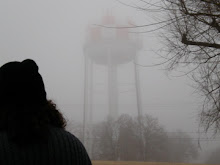Fennesz & Ryuichi Sakamoto - Haru
Discover Simple, Private Sharing at Drop.io
I tend to find things by accident. Such was the case with both artists who collaborated on this album, "Cendre." I first became aware of Ryuichi Sakamoto when I was perusing the Classical section at Barnes & Noble. I bought "Discord" after listening to samples, having taken an initial interest in it simply because the packaging was shiny (no, I'm not too proud to admit it). Sakamoto's music runs the gamut from cheesy electronic pop to film scores and serious "classical" compositions, "Discord" falling into the latter category and being one of my favorite 20th century compositions.
Fennesz & Ryuichi Sakamoto - Mono
Discover Simple, Private Sharing at Drop.io
Christian Fennesz, on the other hand, was forced upon me by the kind folks over at Guestroom Records who were playing his album "Black Sea" in the store one day, prompting me to purchase it immediately. He operates primarily in ambient, electronic and noise styles, falling somewhere between Brian Eno and Merzbow or Lustmord (for the love of all that is Holy, DO NOT, under any circumstances, take this as a positive endorsement of Merzbow), though the sounds he creates tend more toward gorgeous soundscapes than jarring walls of noise.
Fennesz & Ryuichi Sakamoto - Kokoro
Discover Simple, Private Sharing at Drop.io
So we get what they each do individually, but what does that mean for "Cendre?" Well, it means we get something very understated, special and beautiful. If I were to translate the sounds into images, I'd say it sounds like Frédéric Chopin floating with a piano on a very large piece of driftwood in a completely digital sea. The pieces are all fairly short, flowing from one into another without much fanfare, and it's all over before you even know what's happened.
Fennesz & Ryuichi Sakamoto - Abyss
Discover Simple, Private Sharing at Drop.io
This isn't music for every occasion, mind you, but it is something unique and wonderful; something you can put on without distractions and lose yourself in. Sometimes the harmonic language is a little bit jarring, but it's mostly pleasant, drawing heavily on impressionist schools of composition with regard to the Sakamoto's piano, though much more sparse and sparing than many impressionist works. Fennesz' soundscapes rarely overtake the piano and the electronic elements become a perfect compliment to an already enjoyable set plaintive piano pieces. Highly recommended.

Really fascinating. And you're right, I find certain aspects highly reminiscent of the sparsity of Eno and his use of evolving pads and textural underscoring. I will most certainly look into this further. Thanks for the recommendation!
ReplyDelete